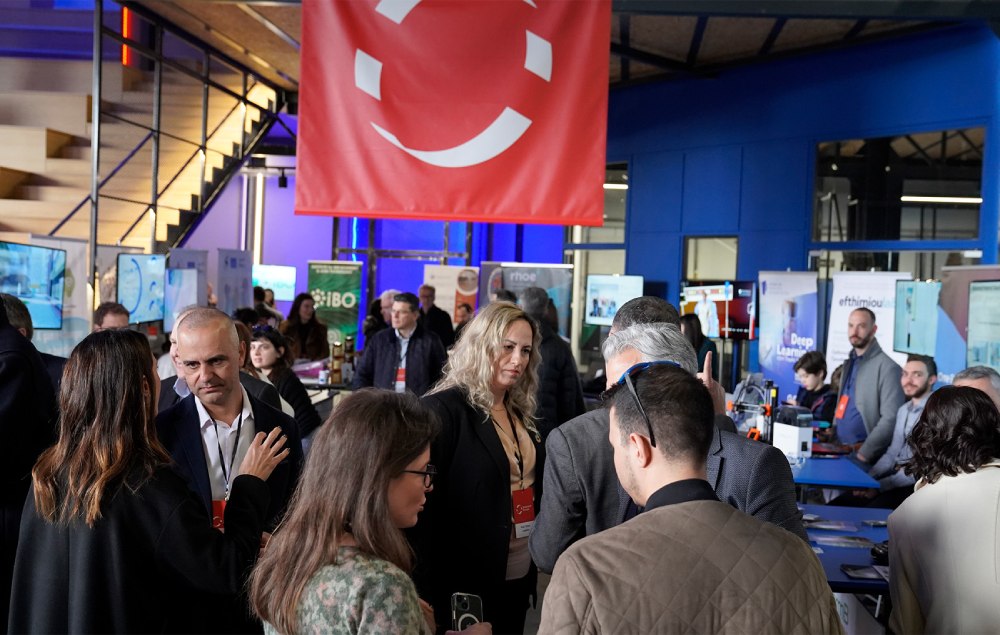The second and last day of Innovent Forum 2024, the hybrid Science and Technology event held at JOIST Innovation Park, deepening the theme “Tech for Humanity”, was a success and attracted a large number of people.
Thirty leading exhibitors presented their innovative products and services live to event visitors alongside a packed programme of presentations, roundtable discussions, interactive workshops, and matchmaking business and research meetings.
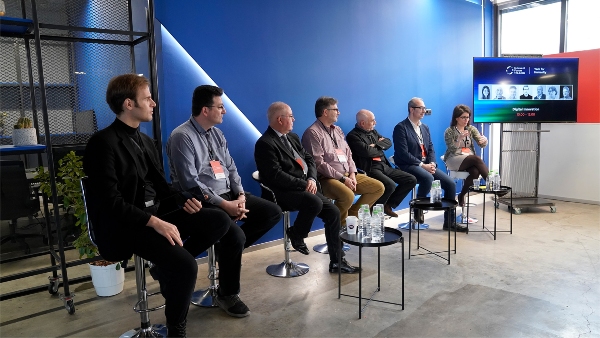
The second day started with a round table discussion on “Digital Innovation”, with the participation of representatives of European Digital Innovation Hubs (EDIHs) in Greece, from Thrace to Crete. Specifically, hubs that participated were GR digiGOV-innoHUB, SYNERGiNN, smartHEALTH, Smart Attica, DigiAgriFood, ESDALAB and Health Hub.Each hub presented its partnership structure, the purpose of the consortium and the services it provides, and communicated how the European Digital Innovation Hubs operate and the needs they cover. The Head of the EDIH Health Hub, Maria Pournari, moderated the discussion.
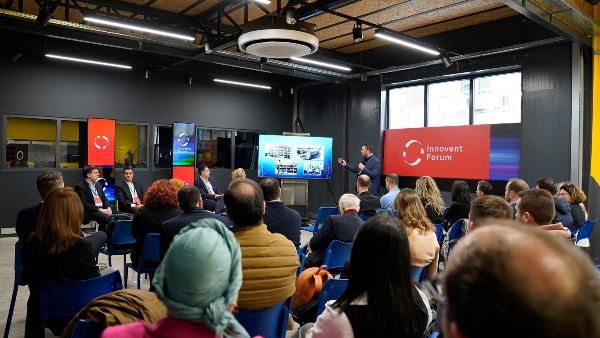
The next panel was dedicated to “Smart Cities“, moderated by Theodora Zacharia, Head of JUST Transition Observatory, who spoke about the importance of digital media and new technologies for a fair transition and presented the governance structure of the Observatory. Nikos Tzollas, Vice Governor of Digital Governance of the Region of Central Macedonia, talked about the digital services developed in recent years in Central Macedonia with a focus on the citizens and said, “Let’s leave the Smart Cities for elsewhere, here we go to implement normality”. Continuing, Evangelos Papalexis, Deputy Mayor of Municipal Police and Traffic Interventions, responsible for Sustainable Mobility and the Development of Intelligent Systems in the Municipality of Larissa, spoke about the plans of the municipal authority for pedestrian mobility, cycling, and collective transport in the city of Larissa and the ideas for the adoption of digitised and robotic systems on the roads. At the same time, he emphasised the need for education, awareness, and information for young people. In his turn, Marios Zacharias, Senior R&D Project Manager of Space Hellas, referred to the role of authorities and the need for a more active role of citizens to improve urban security. In conclusion, Anastasios Zafeiropoulos, a Postdoctoral Researcher from the National Technical University of Athens, referred to examples from the field and specifically from the ARSINOE project that helps to analyse the vulnerability of vulnerable areas to climate change issues.

Discussions continued in the panel “One Health: A Complex and Systemic Strategy for Holistic Health, Prosperity and Sustainability” which was organized around three thematic axes: pandemic and recovery, climate change and antibiotic resistance. Speakers were Dr Chryssi Laspidou, Professor of the Department of Civil Engineering of the University of Thessaly and Vice President of Collaborations at Water Europe Bruxelles, Dimosthenis Sarigiannis, Professor of Environmental Engineering at the Department of Chemical Engineering of the Aristotle University of Thessaloniki and President of the National Hellenic Research Foundation, Emmanouil Pikoulis, Professor of Surgery and Dean of the School of Medicine of the National and Kapodistrian University of Athens and Kostas Tsiamis, Assistant Professor of the Department of Public and One Health at the University of Thessaly. The discussion was moderated by the Rector and Professor of the Department of Veterinary Medicine of the University of Thessaly, Dr Charalambos Billinis. Regarding the recovery from the pandemic, most speakers agreed on the need for some form of global governance to analyse risks, such as the emergence of a new pandemic, and for transparency, education and information for health workers and citizens. On the issue of climate change, the importance of flexibility and cooperation to solve environmental problems was underlined. In particular, Dr Chrysi Laspidou argued that we must analyse and protect vulnerable social groups. In his turn, Dimosthenis Sarigiannis spoke about further strengthening public health. At the same time, Kostas Tsiamis referred to the vicious circle of ecological racism, where the social and economic situation is proportional to the health of an individual. Finally, on antibiotic resistance, all agreed that more awareness of the society and education of health workers and citizens are needed to monitor better and avoid the indiscriminate use of antibiotics.
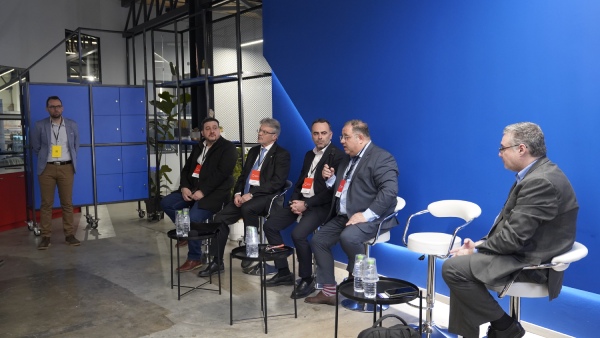
The roundtable discussion “Entrepreneurship, Innovation & Best Practices” was a diverse panel of business representatives and business support and funding organisations that provided real-life best practices. The panel was moderated by Thomas Chalatsis, Senior Project Manager of Institute of Entrepreneurship Development iED with the participation of Mustafa Bektas, Adviser for Foreign Relations of ISTESOB, George Papamichail, Director of Science & Technology Park of Crete (STEP-C), Charis Spyropoulos, Managing Partner, Exoha; Adjunct Lecturer, Perrotis College; Ph.D. Candidate, International Hellenic University; Mentor, MIT Enterprise Forum/StartSmart, Greentech Challenge, Eleni Foti, Director of International Commercial Relations of Athens Chamber of Commerce and Industry – ACCI and Director of THE Athens Startup Business Incubator, Grigoris Vlahakis, Director & Chairman of the Board at the General Hospital of Larissa, Apostolos Papadoulis, Managing Director & Member of the Board of AEDEP and Dimitris Gatos, COO of Cooperative Bank of Thessaly. Mustafa Bektas opened the discussion by talking about ISTESOB and its support as a professional association to SMEs and professionals in Istanbul for education and training to ensure the survival of traditional professions threatened with extinction. Charis Spyropoulos continued presenting research results from the International Hellenic University on the development of startup businesses in Greece, what Greek entrepreneurs seeking funding should be aware of and the requirements they need to meet. After thanking JOIST for acting as a platform for the expression and growth of technology at a local level, Dimitris Gatos referred to the tools used by the Cooperative Bank of Thessaly to approach businesses for financing and the comparative advantages it offers. George Papamichail then presented Science and Technology Park of Crete, which is part of the Foundation for Research and Technology-Hellas (FORTH) and operates as an incubator for technology and innovation companies providing services related to the protection of intellectual property and the development of their business model and strategy. Apostolos Papadoulis presented AEDEP and its substantial performance in increasing the total amount of available resources and their absorption in recent years. Furthermore, Grigoris Vlahakis spoke about how entrepreneurial thinking is relevant even in hospitals, giving examples of innovations that have already been adopted by the General Hospital of Larissa, improving its healthcare services and saving resources through a more accurate costing of its services. He said, “The hospital is looking for something different that will make us better, and this something different is brought by JOIST”. Concluding, Eleni Foti mentioned the Athens Startup Business Incubator, funded by the Athens Chamber of Commerce and Industry, hosting early-stage companies and more, providing administrative and secretarial support, networking, funding, needs diagnosis, training, participation in startup events, opportunities for promotion and communication of products and services and advisory support, also referring to how a company can be involved in it.
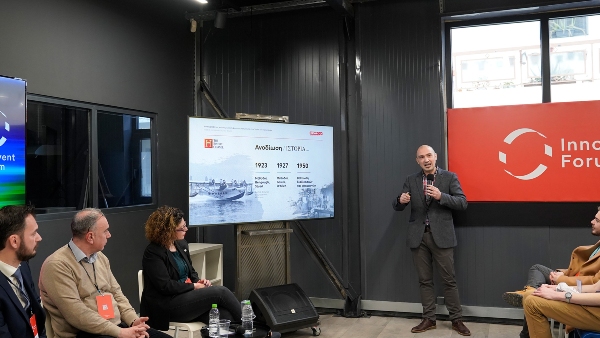
The day included additional roundtable discussions on how technology affects other sectors of society, such as “Energy and Environment“, “Construction“, and “Culture and Technology“, with the participation of academics and experts. Furthermore, a panel was dedicated to “Gaming and Technology” on “The Evolution of Graphics Machines and Other Software, their Current Capabilities, their Ease of Use and the Availability of Educational Information” with the participation of companies and professionals from the gaming industry.

Innovent Forum concluded with an Innovation Marathon organized by the Innovation Unit – Technology Transfer and Entrepreneurship Centre of the University of Thessaly and the Region of Thessaly with the theme “Technology as a tool for managing the impacts of climate change: Prevention, response, recovery”. It was an interactive workshop involving eight teams working to develop innovative solutions to real challenges. The participating teams received four hours of guidance from experienced mentors, such as Lampros Kourtis, CSO of Chronicles Health, George Papamichail, Director of Science & Technology Park of Crete and Thodoris AlexandrouCOO of Institute of Entrepreneurship Development iED.
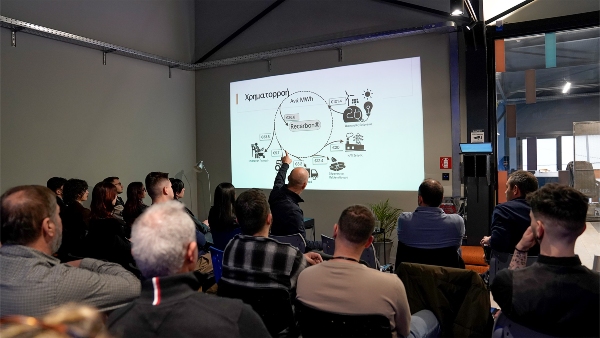
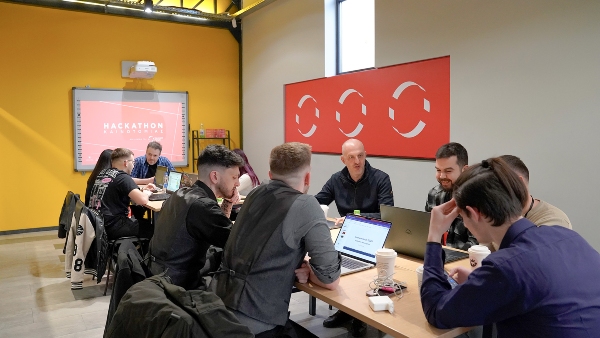
At the end of the day they presented their project ideas in front of the evaluation committee consisting of Dr Charalambo Billini, Rector of the University of Thessaly, Dr Chryssi Laspidou, Professor at the Department of Civil Engineering of the University of Thessaly and Vice President of Collaborations at Water Europe Bruxelles, Dr Spyridon Arsenis,Head of NBG Innovation Unit at NBG Business Seeds, Chrysa HatzivasiliouRepresentative of the General Secretariat of Public Administration and Charis Kalogirou,Technology Advisor at Chronicles Health & Angel Investor. This was followed by a brief evaluation committee meeting to decide on the four best proposals. The first place was won by the team “Bimo” with a prize of 2.000€, the second place the team “People Save People” with a prize of 1.000€, while the teams FloodAid and PlantAlert in third and fourth place, they won 2 free spots at JOIST Innovation Park Coworking Space for three months, free mentoring for implementing their idea for three months, and participation in the second phase of the NBG Competition.
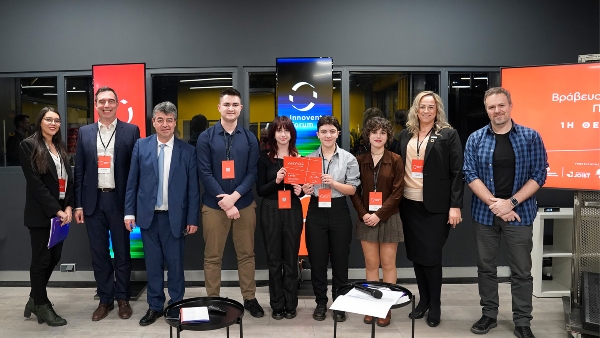
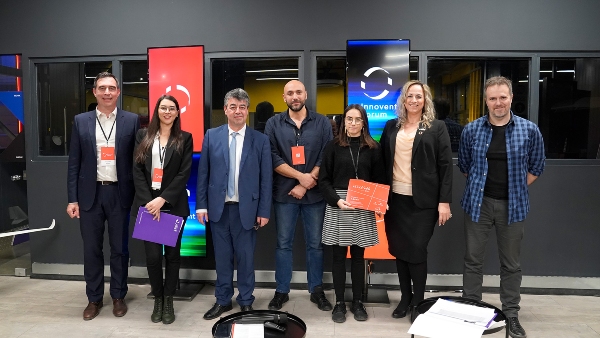
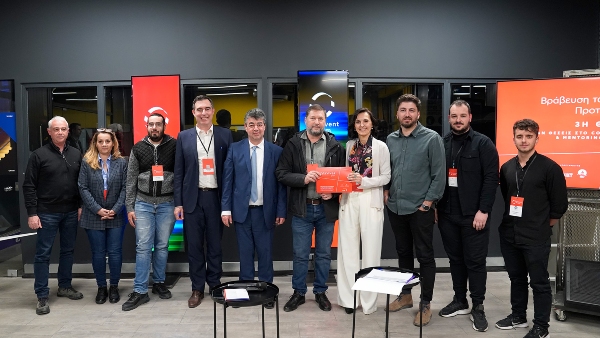
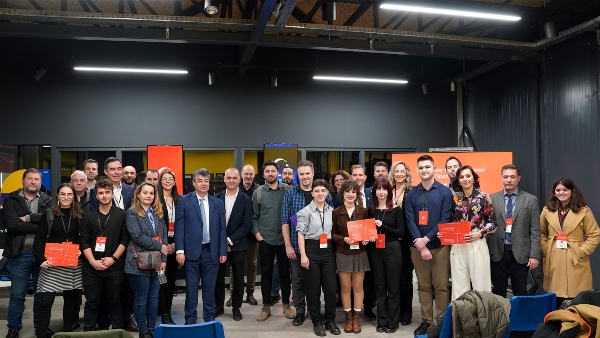
Innovent Forum 2024 was a successful event that brought together many professionals, entrepreneurs, researchers, startupers and representatives of institutions to discuss the use of technology to address critical social and humanitarian challenges. The event was a valuable platform for exchanging ideas and best practices and is sure to have a positive impact on the development of innovative solutions in the coming years.

